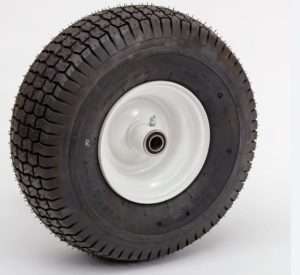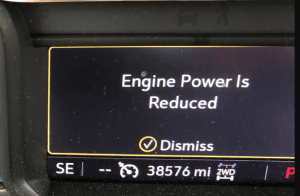Cruising Year-Round: All-Season Dodge Challenger Tires
The Dodge Challenger is a popular muscle car, known for being powerful and stylish. But in order for your Challenger to reach its full potential, it’s important to equip it with the right tires. All-season tires offer top performance no matter what season or road conditions you’re driving in.
In this article, we’ll be looking at some of the best all-season tires available for the Dodge Challenger, so you can find the perfect set for your vehicle.
An overview of what all-season tires are and how they differ from other types of tires
All-season tires are a type of tire designed to provide drivers with reliable performance in all weather conditions. They offer enhanced traction and grip, as well as improved handling for drivers navigating wet or dry roads, hot or cold temperatures, and light or heavy snow.
All-season tires are the most common type of tire sold on the market today due to their versatility and cost-effectiveness.
Compared to summer and winter tires, all-season tires have more treads that allow for better grip in inclement weather conditions.
Summer tires are made from softer rubber compounds which provide more grip but wear more quickly than all-season tires when used in colder temperatures.
Conversely, winter tires have deeper grooves that enable them to cut through snow and ice but become less effective when driving on dry roads during the warmer months.
The specific features and technologies used in all-season tires that make them suitable for use throughout the year
All-season tires, also known as all-weather tires, are a popular and versatile option for drivers looking to maximize their satisfaction with the performance of their vehicles while maximizing convenience.
All-season tires can be used throughout the year and boast numerous technologically advanced features that make them capable of safely navigating through variable weather conditions.
The specific features that make all-season tires suitable for use all year round include specialized tread designs that help to disperse water quickly when driving in wet conditions.
Additionally, these tires also have special rubber compounds designed to remain flexible even in colder temperatures. This helps maintain traction and control on winter roads covered with snow or ice.
The combination of these two features allows all-season tires to provide surprisingly good traction in both summer and winter months.
The advantages and disadvantages of using all-season tires on a Dodge Challenge
Advantages of using all-season tires on a Dodge Challenger:
Convenience:
All-season tires are designed to be used throughout the year, eliminating the need to change tires depending on the season.
Year-Round Performance: All-season tires are designed to provide good traction in both wet and dry conditions, making them suitable for use in a variety of weather conditions.
Cost-effective:
All-season tires are often more cost-effective than purchasing separate sets of tires for different seasons.
Better fuel efficiency:
All-season tires have a lower rolling resistance than summer tires, which improves fuel efficiency and reduces emissions.
Disadvantages of using all-season tires on a Dodge Challenger:
Reduced Performance in Extreme Weather: All-season tires may not perform as well as dedicated winter or summer tires in extreme weather conditions, such as heavy snow or extreme heat.
Tread life:
All-season tires tend to have shorter tread life than summer tires, as the tread compounds are designed to work well in a wider temperature range, which can cause them to wear out faster.
Noise:
All-season tires tend to be noisier than summer tires, as the tread pattern is designed to provide good traction in a variety of conditions, which can cause more road noise.
Reduced Traction:
All-season tires may not have the same level of traction as summer or winter tires in specific weather conditions. In heavy snow or ice, for example, winter tires are typically better suited for the task.
Price:
All-season tires tend to be more expensive than summer tires due to their versatility and a wider range of applications.
Comparison between different brands of all-season tires available for the Dodge Challenger
When comparing different brands of all-season tires for a Dodge Challenger, it is important to consider their price range, durability, and performance in wet and dry conditions.
Here is an example comparison between three popular brands of all-season tires:
Michelin Premier A/S: These tires have a higher price range, but offer exceptional durability and wet and dry performance. They also have a longer tread life than many other all-season tires.
Goodyear Eagle Sport All-Season: These tires have a mid-range price, and offer good wet and dry performance, as well as a comfortable ride and low noise level. They also have a longer tread life than some other brands.
Firestone Destination LE2: These tires have a more affordable price range, and offer good wet and dry performance, as well as a comfortable ride. They have a shorter tread life compared to the above two options.
It’s worth noting that this is just an example and that there are many other brands and models of all-season tires available for the Dodge Challenger, each with its own unique features and performance characteristics.
It’s always a good idea to check customer reviews, and also to consult with a tire expert or mechanic before making a final decision.
Tips on how to maintain all-season tires
Properly maintaining all-season tires is important to ensure they last as long as possible and perform at their best.
Regular rotation:
Tires should be rotated every 5,000 to 7,500 miles or as recommended by the manufacturer, to ensure even wear and extend their lifespan. Rotating the tires also helps them to wear evenly, which helps to improve their overall performance.
Balancing:
Tires should be balanced every time they are rotated, to ensure smooth and stable handling. Unbalanced tires can cause vibrations and uneven wear, which can reduce their lifespan.
Alignment:
The wheels should be aligned regularly, typically every 6,000 to 12,000 miles or as recommended by the manufacturer, to ensure proper alignment and handling of the vehicle. Improper alignment can cause uneven wear and can reduce the lifespan of the tires.
Tread depth:
Tires should be checked for tread depth regularly, using a tread depth gauge. Tires with less than 2/32 of an inch of tread depth should be replaced, as they may not provide adequate traction in wet conditions.
Wear:
Tires should be checked for uneven wear, such as cupping, feathering, or excessive wear on one side of the tire. Uneven wear can indicate a problem with the vehicle’s alignment, suspension, or balancing, and it’s important to address it as soon as possible.
Pressure:
Tires should be checked for proper inflation pressure at least once a month and always before a long trip. Under-inflation or over-inflation can cause uneven wear and reduce the tire’s lifespan.
Storage:
Tires should be stored in a cool, dry place and kept out of direct sunlight to prevent cracking or other damage.
It is also important to check the owner’s manual of your Dodge Challenger for the recommended maintenance schedule for tires and to follow the manufacturer’s recommendations.
FAQs on All-Season Dodge Challenger Tires
Q: What are all-season tires?
A: All-season tires are tires that are designed to provide good traction in both wet and dry conditions and are suitable for use throughout the year. They are a compromise between summer and winter tires and are suitable for most weather conditions.
Q: What are the advantages of using all-season tires on a Dodge Challenger?
A: All-season tires are convenient, they offer year-round performance, they are cost-effective and they also have better fuel efficiency than summer tires.
Q: Can all-season tires be used in heavy snow or extreme heat?
A: All-season tires are designed to provide good traction in a variety of weather conditions, but they may not perform as well as dedicated winter or summer tires in extreme weather conditions. They are a good choice for a vehicle that is driven in moderate conditions.
Q: How long do all-season tires last?
A: The lifespan of all-season tires depends on various factors such as driving habits, road conditions, and proper maintenance. On average, they tend to last between 40,000 to 60,000 miles.
Q: How can I maintain my all-season tires?
A: To maintain all-season tires, it is important to check the tire pressure regularly, rotate the tires every 5,000 to 7,500 miles, balance the tires every time they are rotated, align the wheels regularly, check the tread depth, check for uneven wear, and store the tires in a cool, dry place. It is also important to check the owner’s manual of your Dodge Challenger for the recommended maintenance schedule for tires and to follow the manufacturer’s recommendations.



